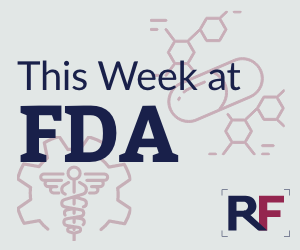This Week at FDA: HHS delays SUNSET rule, FDA begins release of Comirnaty review docs, and more
 Biologics/ biosimilars/ vaccinesBiotechnologyDiagnostics/IVDsMedical DevicesNorth AmericaPharmaceuticalsRegulatory Intelligence/Policy
Biologics/ biosimilars/ vaccinesBiotechnologyDiagnostics/IVDsMedical DevicesNorth AmericaPharmaceuticalsRegulatory Intelligence/Policy Biologics/ biosimilars/ vaccinesBiotechnologyDiagnostics/IVDsMedical DevicesNorth AmericaPharmaceuticalsRegulatory Intelligence/Policy
Biologics/ biosimilars/ vaccinesBiotechnologyDiagnostics/IVDsMedical DevicesNorth AmericaPharmaceuticalsRegulatory Intelligence/Policy